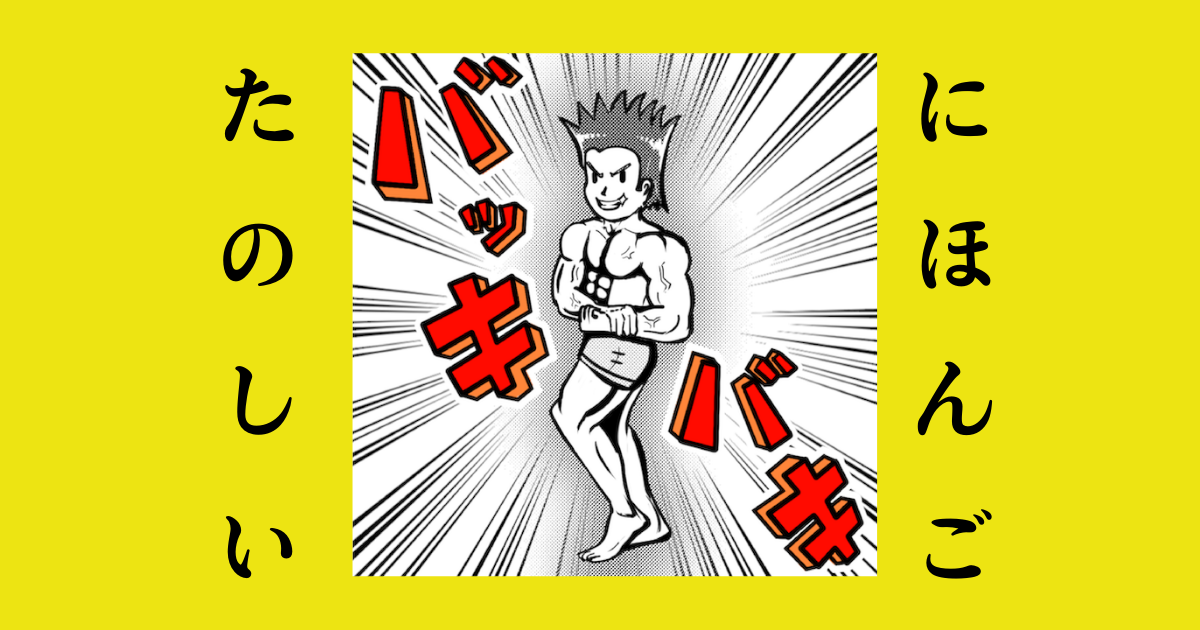
In the "FUN! JAPAN NEWS" e-mail newsletters that FUN! JAPAN send to our subscribers once a week, there is a manga every week that makes learning Japanese fun. In this article, we will showcase the past 12 manga all at once! If you use these onomatopoeia and mimetic words in front of Japanese people, they might be surprised by your Japanese level!
Manga production cooperation: Japanese culture with manga! Manga de Japan
1. Berobero (ベロベロ)
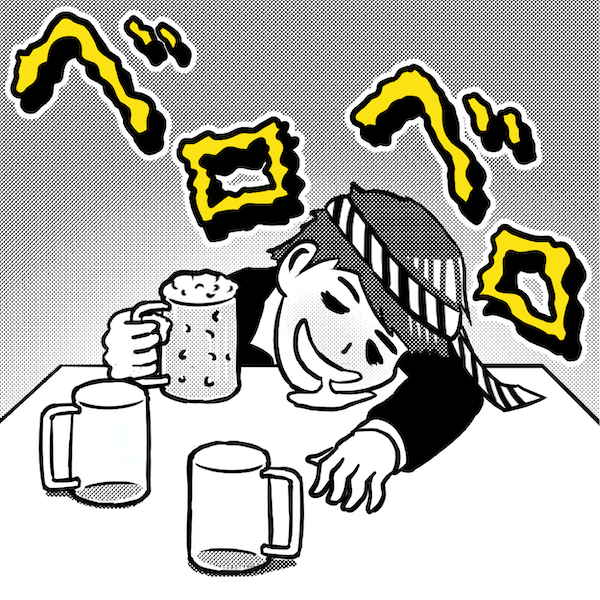
"Berobero" is a word that describes a state of being severely drunk. People who are so drunk that they can't walk straight or even fall asleep on the street. Think of being "completely smashed".
Japanese people like drinking parties and communicate with colleagues and friends until late at night while drinking alcohol. As a result, many people drink too much alcohol and become "berobero".
If you see a red-faced person walking unsteadily in a downtown area at night in Japan, whisper to yourself, "あの人は、ベロベロだ" (ano hito wa berobero da. - That person is so drunk).
2. Bakkibaki (バッキバキ)
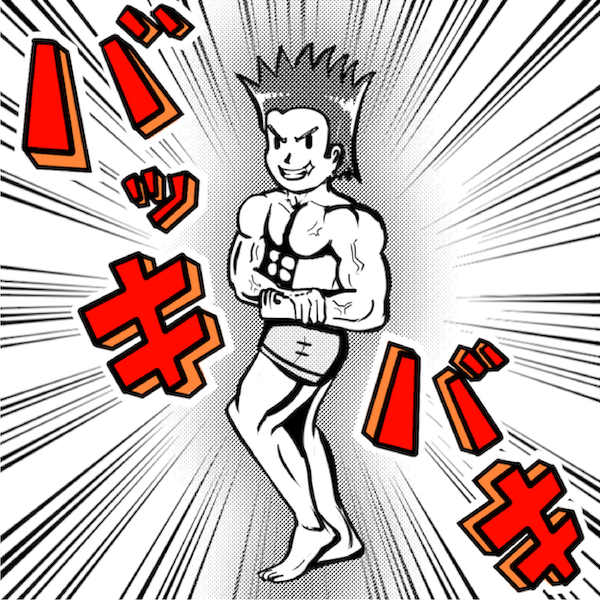
This is a word that expresses a toned body with a lot of muscles, think of it as a "chiseled body muscle" or someone with six packs or someone competing in bodybuilder competitions. If you see someone like this at a hot spring or gym, give them a compliment "バッキバキですね!" (Bakkibaki desu ne! - You are so muscular!".
By the way, there is another word that describes a person who has a lot of muscles, but not as much as Bakkibaki, which is "Mukimuki" (ムキムキ). There are a lot of muscular people in the world, but it is very difficult to reach the level of Bakkibaki.
3. Deredere (デレデレ)
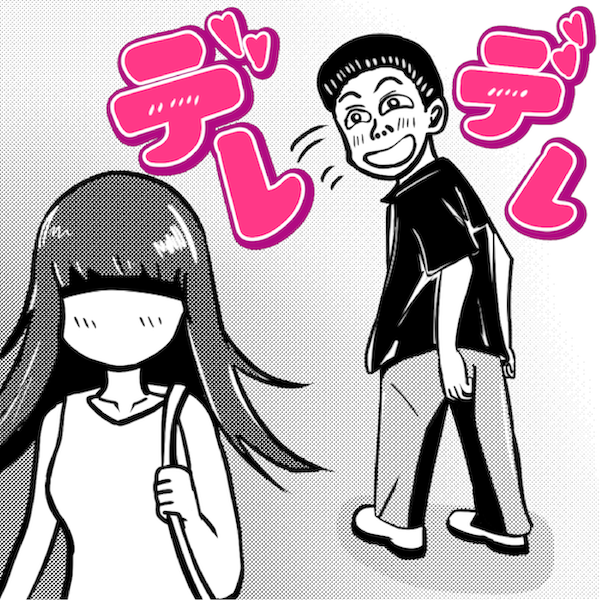
This is a term used to describe someone who behaves in a haughty way towards someone they like or love, similar to "head over heels" in English. For example, you love your girlfriend so much that you do whatever she asks of you, or simply smile just by looking at her face. This word has a slightly negative connotation, so don't say things like "あなた、ガールフレンドにデレデレですね。" (Anata, ga-rufurendo ni deredere desu ne. - You fell head-over-heels for your girlfriend) to the person in question directly.
4. Tekipaki (テキパキ)
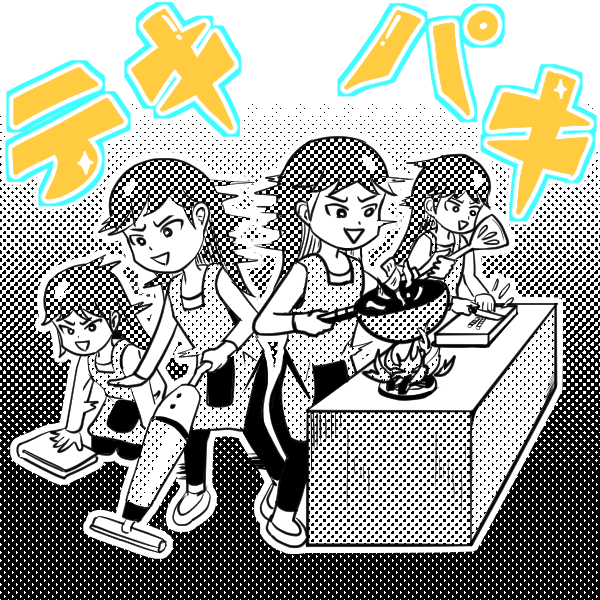
The secret to using time effectively is to move efficiently. The perfect word for such a situation is “tekipaki”. This is a term used to describe the ability to do work or household chores quickly and accurately. It being fast isn't enough to though, "tekipaki" requires both fastness and accuracy. If there are such excellent people around you, please praise them by saying, "テキパキしているね!" (tekipaki shite iru ne! - You are so efficient!).
5. Gussuri (ぐっすり)
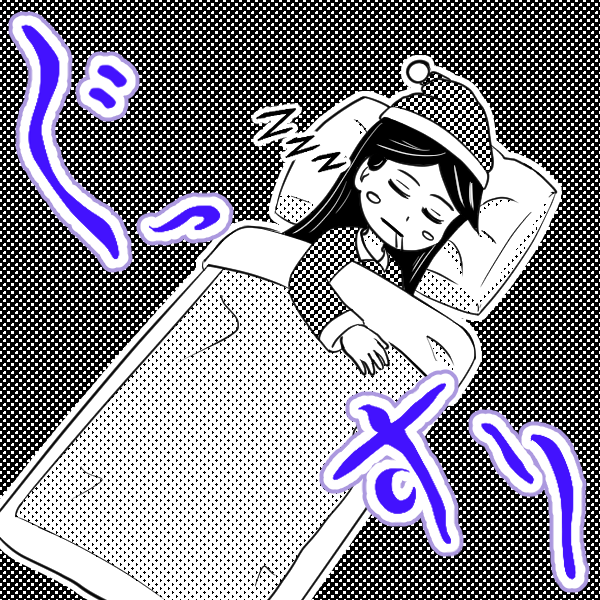
This is Japanese term for sleep. "Gussuri" is a word that describes a state of relaxed and deep sleep. It sounds similar to "Good Sleep", so use that as a trick to remember this word. It is said that you dream when you are in a light sleep, but "gussuri" is used when you are sleeping so deeply that you do not even dream, in other words, when you are sleeping soundly.
Example usage:
A: おはよう!きょうは朝から元気だね。(Ohayou! Kyou wa asa kara genki desu ne. - Good morning! You've been so lively since this morning.)
B: うん、きのうの夜、ぐっすり寝たからね。(Un, kinou no yoru, gussuri neta kara ne. - Yes, because I slept so well last night.)
6. Wakuwaku (わくわく)
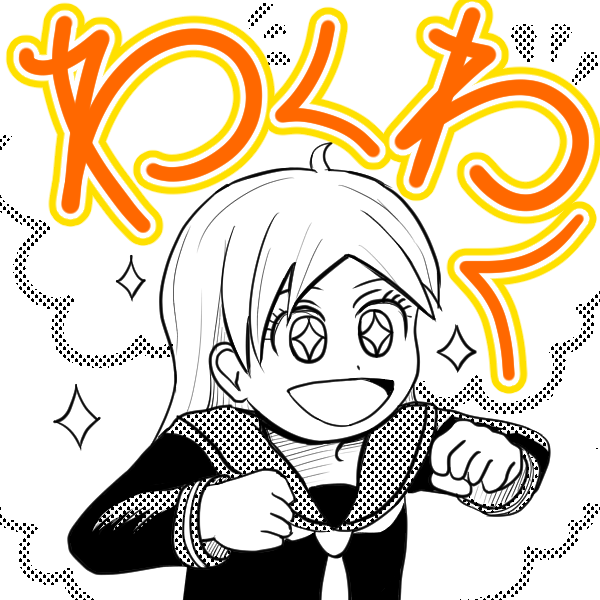
This word describes the state of being excited or impatient at the thought of a pleasant event ahead. Things like birthday parties, trips, dates, holidays... there are so many fun things to do in life. In other words, there are many situations where you can use “wakuwaku”.
For example, if you can't wait to go on a trip, say, "いよいよ来週から日本旅行だ!あぁ、わくわくする!" (iyoiyo raishuu kara nihon ryokou da! aa, wakuwaku suru! - I'm finally going to Japan next week! Oh, how exciting!"
7. Bisshori (びっしょり)
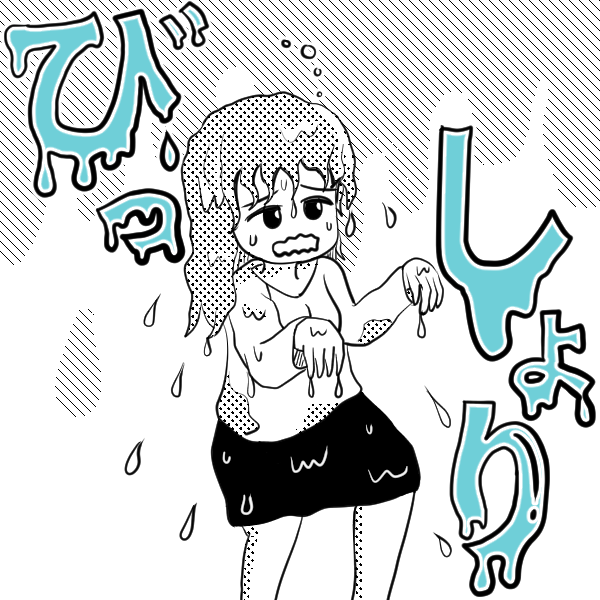
Have you ever gone out without an umbrella and suddenly it started to rain and you were completely drenched? "Bisshori" is the Japanese word for the state of being drenched all over the body. "Bisshori" is used not only when it's raining, but also when you sweat a lot, or when you accidentally fall into a pool or river and get completely drenched.
8. Zuruzuru (ズルズル)
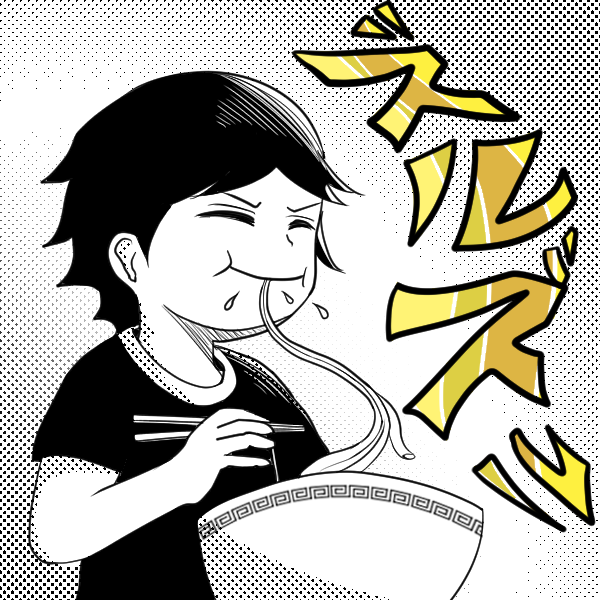
Some Japanese people make a lot of noise when eating noodles such as soba and ramen. From the perspective of foreigners, it may feel a little bad manners. “Zuruzuru” refers to the sound you make when you slurp noodles. If you want to know what the slurping sounds like, watch the video below after the 7 minute mark. The FUN! JAPAN's Japanese staff member is eating soba while making a slurping sound.
9. Pekopeko (ペコペコ)
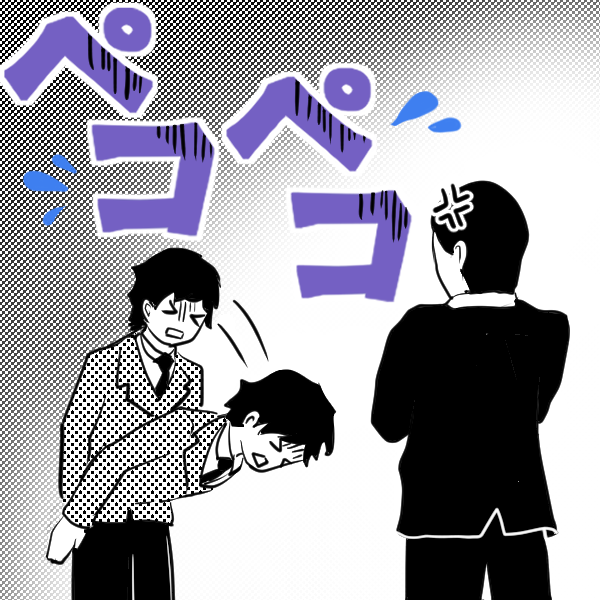
Pekopeko is a word related to "bowing". Bowing is the act of lowering one's head to express apology or gratitude to another person, and Pekopeko means that someone bows frequently. "Peko" is an onomatopoeic word that expresses the movement of lowering the head, so "pekopeko", which repeats "peko" twice, expresses the state of repeatedly bowing. It has a slightly negative meaning, so please refrain from pointing out things like, "あなたは、いつも上司にペコペコしていますね" (Anata wa, itsumo joushi ni pekopeko shite imasu ne. - You always bow at your boss, aren't you?)
Related Article: 3 Methods of Japanese Bowing
10. Perapera (ペラペラ)
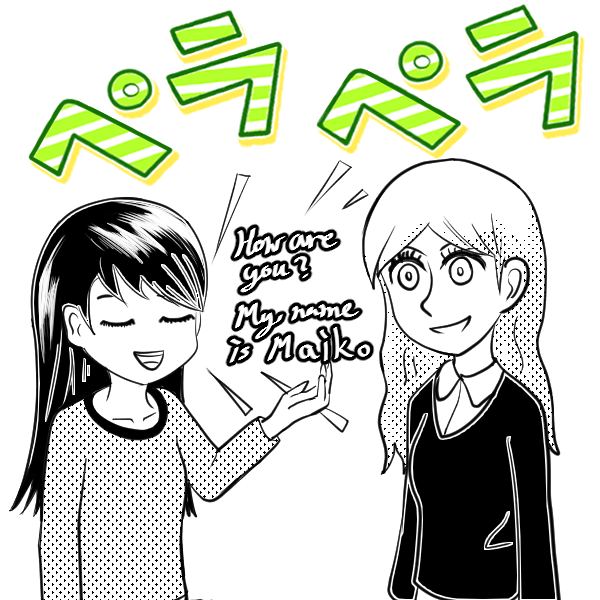
When we talk to FUN! JAPAN members, I am often surprised by how good their Japanese is.
"Perapera" is a word that describes how fluently one speaks a foreign language. If you see a Japanese person who speaks English well, compliment them by saying, “あなた、英語がペラペラですね!" (Anata, eigo ga perapera desu ne! - You speak English fluently!). I'm sure that person will be delighted.
11. Gutsugutsu (グツグツ)
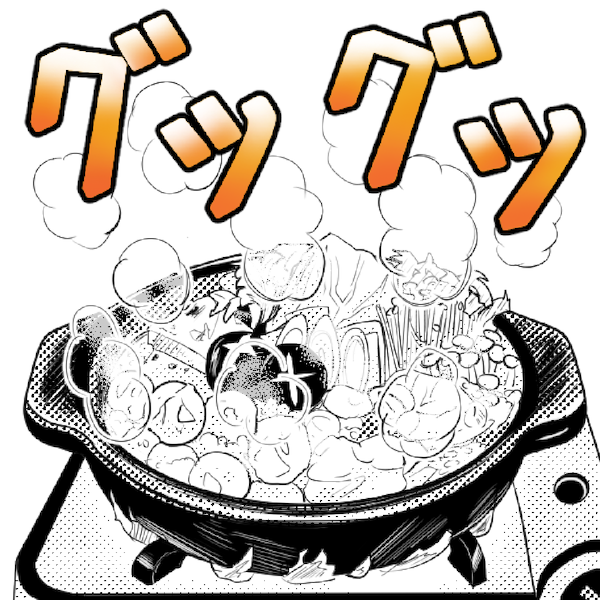
This is a word about the Japanese favorite winter dish "nabe" (a.k.a. hotpot). Nabe is a dish made by simmering tofu, fish, meat, mushrooms, vegetables, and soup in a large pot. Fugunabe, motsunabe, chankonabe... there are many different types of hotpot. “Gutsugutsu” is a word that describes how a pot dish is boiling. For Japanese people, the sound of boiling can be heard as "gutsugutsu". When eating a hot pot dish in Japan, you can say, "鍋がグツグツ言っています。そろそろ食べごろですね" (Nabe ga gutsugutsu itte imasu. Sorosoro tabe-goro desu ne - The hot pot is sizzling. It's about time to eat.)
Related Article: The things you might not know! The correct way to eat & manners for “Nabe Ryori(鍋料理)” – All about the Japanese hot pot!
12. Mukamuka (ムカムカ)
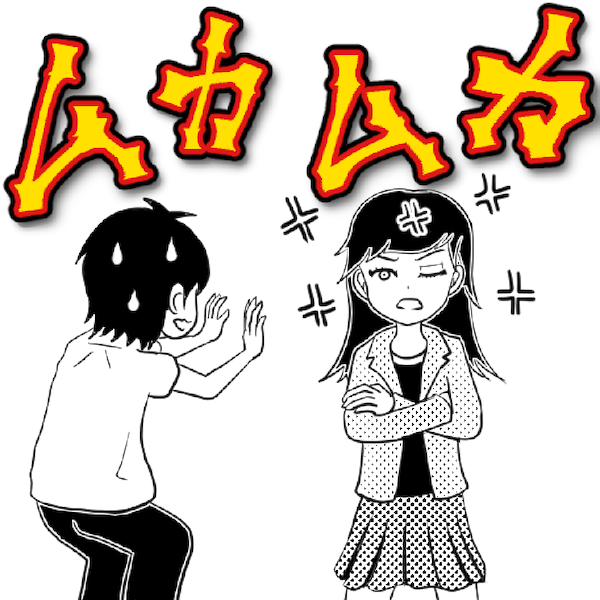
The less often people use this word, the happier they are. This is because "Mukamuka" is a word that expresses the feeling of being angry with someone or a situation. If someone around you looks displeased with furrowed brows, ask yourself, "あの人は、なんでムカムカしているのだろう?" (Ano hito wa, nande mukamuka shite iru no darou? - Why is that person upset?) It is better to not ask the person in question directly like "なぜムカムカしているんですか?" (Naze mukamuka shite irun desu ka? - Why are you upset?) though.
The official YouTube channel of FUN! JAPAN, "FUN! JAPAN TV," introduces videos of words that Japanese people often use in daily conversations. Be sure to check it out! (subtitles are available)
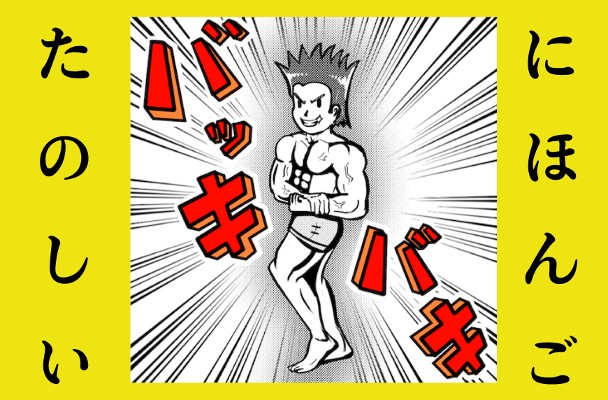



Comments